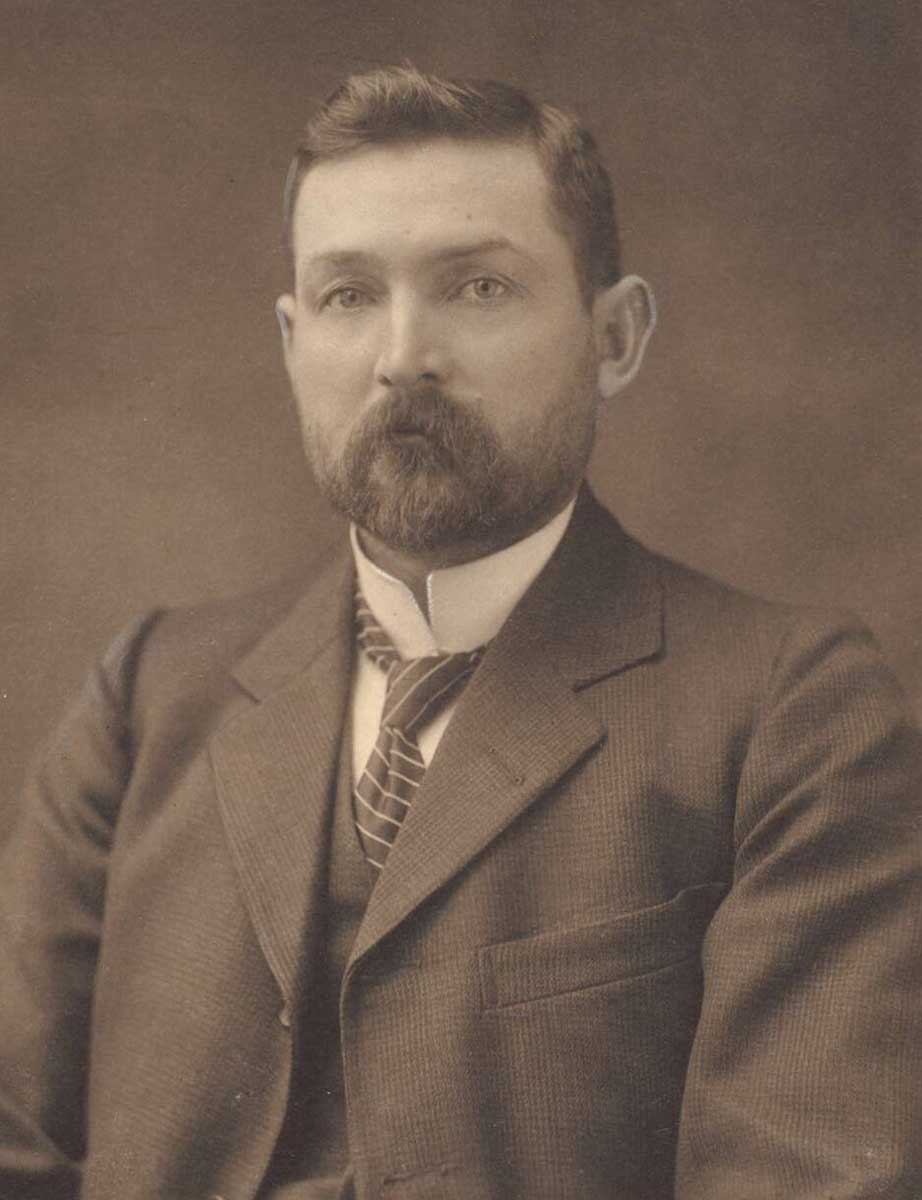Australia’s 3rd Prime Minister

27 April 1904 to 17 August 1904
Although he served as Prime Minister for little more than three months, Chris Watson played an important part in Australian history – he was the first leader of the Labor Party, and the first Labor prime minister.
Watson's beginnings
John Christian Watson was born on 9 April 1867 in Valparaiso, Chile.
He was the only child of Johan Christian Tanck, a ship’s officer, and Martha Minchin. Martha later married George Thomas Watson of New Zealand and had nine more children. ‘Chris’, her first son, adopted his stepfather’s name, and became part of the new family.
Watson attended primary school in Oamaru, New Zealand. He left school at 10, and worked on the railways and as a printer’s assistant before serving an apprenticeship as a compositor on the North Otago Times.
In 1886 he moved to Sydney to work in his trade. He became active in the union movement, and was elected President of the Sydney Trades and Labour Council in 1893. He became President of the Australian Labour Federation in 1894.
He was elected to the New South Wales Legislative Assembly as the Labor candidate for the seat of Young in July 1894. He kept his seat until 1901, when he left state parliament to enter the first federal parliament.
Watson married Ada Jane Lowe in 1889. Four years after Ada’s death, he married Antonia Dowlan, with whom he had one child.
Watson's entry into federal politics
At the first Australian federal election on 29 March 1901, Chris Watson was elected as the Labor candidate for the seat of Bland, New South Wales.
In April 1901 he became the first leader of the federal parliamentary Labor Party. He was very influential because two other main parliamentary groupings, the Protectionists and the Free Traders, required Labor support to govern.
Although respected by all groups for his courtesy and tact, Watson generally preferred the Protectionists because he believed their policies were more like Labor’s than those of the Free Traders. Relying on Labor’s support, the Deakin Protectionists formed government and retained office following the second federal general election on 16 December 1903.
Prime Minister Chris Watson
Watson was appointed both Prime Minister and Treasurer on 27 April 1904, when Deakin resigned over Labor’s amendment to his Conciliation and Arbitration Bill.
Watson was commissioned to form a government, which became the first federal Labor government. With 26 members, Labor had only half the combined number of Protectionists and Free Traders, and therefore faced an almost impossible task to retain office.
In the space of months, Watson’s government lost office, over the issue of socialism. The fall of the Watson Labor government occurred on 17 August 1904 when an amendment was passed against the government’s Arbitration Bill, which had tried to give preference in employment to unionists.
George Reid was commissioned to form a government of Free Traders on 28 August in place of Watson’s Labor government.
Watson's later political life
Having lost office to Reid’s Free Traders, Watson helped overturn Reid’s government 10 months later. Watson then gave support to Deakin’s second Protectionist government because he believed it was more sympathetic to Labor ideals.
Watson won the South Sydney seat at the 1906 general election, before resigning the Labor leadership in 1907 because of ill health. He was replaced by Andrew Fisher. He did not seek a ministry when Fisher formed his first Labor government on 10 November 1908, after the fall of the Deakin government. Watson retired from politics when the third parliament ended on April 1910.
Watson's life beyond politics
After quitting parliament at the age of 43, Watson developed business interests and became director of a number of companies. During the conscription controversy of 1916 he supported the pro-conscription position of Prime Minister William Morris Hughes and was expelled from the Labor Party.
He later became President of the New South Wales National Roads and Motorists’ Association (NRMA), and held this position for many years.
He died on 18 November 1941 at Double Bay, New South Wales.
Legislation passed under Watson
Six Acts of parliament were passed during the period in office of Chris Watson, all but one of which was a money bill.